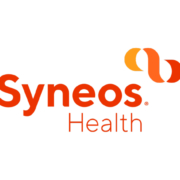Janssen Touts Positive Data For Tremfya, Stelara
Janssen Touts Positive Data For Tremfya, Stelara
Janssen Pharmaceutical shared positive updates from ongoing trials on candidate therapies for Crohn’s disease (CD) and ulcerative colitis (UC) at Digestive Disease Week in San Diego, California.
New data from the Phase II Galaxi 1 trial of Tremfya (guselkumab) in adults with moderately to severely active CD showed that patients who were intolerant of or had poor response to conventional CD therapies, like immunosuppressives and corticosteroids, had achieved high clinical biomarker response levels at 47.5% to 66.7%.
They also reported high endoscopic response and clinical remission with C-reactive protein or fecal calprotectin at 48 weeks. Safety outcomes were consistent with Tremfya’s known safety profile in approved indications. Notably, the drug is not yet approved in the U.S. to treat either UC or CD.
“These new data from the Galaxi 1 study are encouraging as we continue to investigate long-term treatment solutions. The clinical-biomarker response and endoscopic response data from the Phase 2 Galaxi 1 clinical trial build upon the study’s clinical remission outcomes and give us insight into the potential that Tremfya may provide sustained remission,” Remo Panaccione, MD, the study’s author and professor at the University of Calgary in Canada, said in a statement.
For the Galaxi 1 trial, the patients were divided into five treatment units, including those who received Tremfya at 200 mg, 600 mg or 1,200 mg IV doses at weeks zero, four and eight. The primary endpoint is the change from baseline in Crohn’s Disease Activity Index (CDAI) scores at week 12. Other key outcomes assessed were clinical remission, clinical response, PRO-2 remission, clinical-biomarker response, endoscopic response and safety.
The other data that Janssen presented at DDW featured the long-term safety profile of Stelara (ustekinumab) in bio-naive and bio-failure ulcerative colitis and Crohn’s disease patients. The presentation showed that Stelara’s safety profile was consistent with those observed in the overall inflammatory bowel disease population and across approved indications for the drug.
Pooled data from 13 studies across various indications, including psoriatic arthritis, UC and plaque psoriasis, also demonstrated no increased malignancy concerns compared to those given a placebo.
“Drawing from a two-decade legacy of immunology innovation, we continue to generate new evidence for Stelara and are investing deeply in our pipeline to usher in a new era of treatment, leveraging the continued research of pathway science aiming to establish Tremfya as a trusted therapeutic option for healthcare professionals and people who are living with inflammatory bowel disease,” Jan Wehkamp, MD, Ph.D. noted, the vice president and gastroenterology disease area leader at Janssen Research & Development.
Crohn’s disease is one of two main types of IBD that affects around three million Americans and for which there is currently no cure. Ulcerative colitis, a condition of the large intestine, affects about one million people in the U.S.
Tremfya is approved in the U.S., Japan, Canada and other countries for adults with moderate to severe plaque psoriasis who are candidates for injections, pills or phototherapy, as well as for adults with active psoriatic arthritis. It is also approved in the European Union for moderate to severe plaque PsO who are candidates for pills and to treat active PsA in adults who are intolerant or respond poorly to antirheumatic drug therapy.
BioSpace source:
https://www.biospace.com/article/janssen-presents-key-updates-in-uc-crohn-s-disease-therapy












